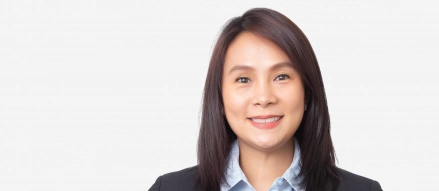
Accounting under the AEC
Keywords: Mazars, Thailand, Accounting, Audit, AEC, ASEAN, FAP, CPA, Bookkeeper, DBD, Ministry of Commerce, CPD
13 November 2015
An important element of the liberalisation of accountancy services is the ability of qualified accountancy professionals from one jurisdiction (home country) to practice in another jurisdiction (host country).
For Thailand, guidance for Laws on Accountancy Profession and qualifying and practicing as an accountant in ASEAN Member states is currently as follows:
Laws on Accountancy Profession
Services provided by accountancy professionals are regulated by the law relating to bookkeeping under the Accounting Act. B.E. 2543 (2000).
In Thailand, under the law, accountants are described as bookkeepers. A “bookkeeper” is defined as “a person responsible for the bookkeeping of the person having the duty to keep accounts, whether it is undertaken in the capacity of an employee of the person having the duty to keep accounts.” Bookkeepers are regulated by Department of Business Development (‘DBD’), Ministry of Commerce.
The accounting profession which includes bookkeeping, auditing, management accounting, accounting systems, tax accounting, accounting education and technology, or other accounting services prescribed by the ministerial regulations are regulated by the Accounting Professions Act B.E. 2547 (2004) (“Act”) and professionally self-regulated by the Federation of Accounting Professions (‘FAP’). Under the law, only a Certified Public Accountant is allowed to apply for an auditor’s license from the FAP.
However, under this Act, the Professional Accounting Supervisory Commission authority has been set up to supervise all activities of the FAP according to the Act.
The Act stipulates the authority, role and objectives in the following areas:
a. The Federation of Accounting Professions;
b. Members of the Federation of Accounting Professions;
c. The Committee of the Federation of Accounting Professions;
d. The Committee on Accounting Standard-setting;
e. The Supervision of Auditing Professions;
f. The Supervision of Bookkeeping Professions;
g. The Code of Accounting Profession Ethics;
h. Oversight on accounting professions; and
i. Penalties.
Qualifying as an Accountant / Bookkeeper
To become a bookkeeper, a person must first apply to be a member of FAP or register with FAP. After becoming a FAP member or registering with FAP, the person can register with the DBD to be a bookkeeper.
The DBD will verify whether or not the person has met the minimum requirements, for example, education.
In order to be a Certified Public Accountant in Thailand, the individual must be a member of FAP and complete the Certified Public Accountant (‘CPA’) examination as governed and conducted by the FAP.
The basic requirements are:
i. Having professional education (e.g. shall have a university / higher education degree, postgraduate education etc.). A member of FAP must have a related degree in accountancy (normally 4 years of study).
ii. Passing 7 subjects within 4 years (6 subjects from 1 January 2014 onwards). Each subject passed remains valid for only 4 years if a CPA applicant has not yet passed the all the examinations.
iii. Completing 3,000 hours of practical experience continually by 3 years and no later than 5 years as pre-qualifications before becoming the CPA.
The examinations are in Thai language.
For an individual to apply for a license of a Certified Public Accountant, the following qualifications and criteria have to be met:
i. Being an ordinary member or an extraordinary member of FAP. In the case of an extraordinary member as a foreigner, the person shall be proficient in Thai (to be able to audit and to prepare a report in Thai) and shall have domicile in Thailand. After obtaining a license, the person shall obtain a work permit in accordance with the law on aliens’ work;
ii. Having passed an examination, training, or apprentice or having practiced in accounting professions as prescribed by the regulations of FAP;
iii. Never having been imprisoned by a court’s judgment for offences under Section 269 and Section 3233, or offences related to property except offences on loss of property and trespassing under Criminal Code, offences under accounting law, auditing law, or corporate liability law as limited to offences relating to fault or untrue certification of financial statements, accounts or reports, or offences under Chapter 5 and Chapter 6 of the Act unless the individual has been released for not less than five years;
iv. Not being bankrupt; and
v. Minimum age of 20 years old.
The FAP shall issue a license to the applicant not later than ninety days from the date of submission of the application (if the applicant is qualified). The application, approval, and issuance of a license of a Certified Public Accountant shall be in accordance with forms and criteria as prescribed in the regulations of the FAP.
Both bookkeepers and auditors (both practicing and non-practicing) are required to obtain 27 CPD hours within 3 years (12 hours in each year from 1 January 2015 onwards) for bookkeepers and 12 hours (18 hours from 1 January 2014 onwards) in each year for auditors.
Role of the Accounting and Auditing Profession
A properly functioning accounting and auditing profession is a critical component of private sector development in terms of domestic investor confidence and the ability to attract foreign direct investment.
Most of the countries in ASEAN have or are in the process of adopting and implementing international accounting and auditing standards for both the private and public sectors. However, there are significant capacity issues in both the sectors, particularly in the ‘lesser developed’ member countries in ASEAN.
We will discuss in future Technical Updates the standard setting in ASEAN.
Source: “Liberalisation of Professional Services through Mutual Recognition in ASEAN: Accountancy Services” and “Current status of the Accounting and Auditing Profession in ASEAN Countries” by the World Bank”

